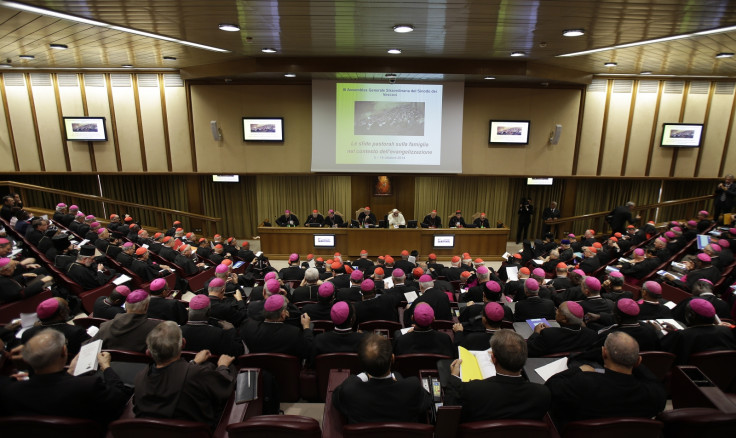Vatican Backtracks on Revolutionary Approach to Homosexuals
After signs of change towards its stance on homosexuals, the Catholic Church will maintain its traditional stance

From an open, if not welcoming, stance on homosexuals which was promoted by Pope Francis, Roman Catholic bishops have voted to continue to uphold traditional families to "avoid confusion among the faithful".
A document issued at the end of a two-week assembly, or synod, of 200 Roman Catholic bishops from around the world, stressed that "there is no foundation whatsoever" to compare homosexual marriage to heterosexual marriage, calling heterosexual marriage "God's plan for matrimony and the family".
It was changed from a previously released draft but takes a more welcoming attitude towards homosexuals, repeating earlier statements that gays "should be welcomed with respect and sensitivity" and that discrimination should be avoided, reports Reuters.
However, voting results released by the Vatican showed that the new articles failed to secure the two-thirds majority needed for a consensus. Although the Vatican released voting results, it did not specify how individual bishops voted.
The new report will be cause for further reflection among Catholics, ahead of another synod next year.
The final version had eliminated all the phrases and most of the language from the earlier version released on Monday which had spoken of "accepting and valuing their (homosexuals') sexual orientations" and giving gays "a welcoming home".
While gay rights groups expressed deep disappointment with the final version, the conservative Catholic blog Rorate Caeli hailed it as "a considerable setback for the revolutionaries".
The two-paragraph section of the final document dealing with homosexuals was titled "Pastoral attention towards persons with homosexual orientations".
In his final address to the gathering, Pope Francis expressed his satisfaction over the heated, honest discussion. He warned against both "hostile rigidity" by traditionalists as well as "destructive good will" by progressives, who wanted change at any cost.
© Copyright IBTimes 2025. All rights reserved.





















